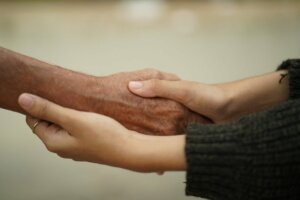The Many Skills That You Can Develop

As a human being, you learn in interaction with your environment. In fact, there’s not a day that goes by that you don’t learn. Thanks to this learning, you’re developing different skills that help you to face different situations successfully.
Skills refer to the efficient, effective, and successful development of a task. When we speak of skill, we refer to the ability of a person to achieve success in the task at hand. Indeed, the skilled person has the ability to do what they’re skilled at correctly and with ease.
Skills can be categorized into four large groups: cognitive, social, physical, and life skills.
Cognitive
These relate to the processing of information and its subsequent use. In fact, cognitive skills allow you to understand the world and process the stimuli that your senses pick up.
Here are some examples:
- Memory. The cognitive ability that allows you to encode, consolidate and retrieve information.
- Perception. The process by which the information from your senses is organized and processed.
- Attention. Being able to direct your mental resources toward certain aspects of your environment.
- Comprehension. The ability to understand what you perceive and to generate ideas through your observation of the environment.
- Metacognition. Realizing your own cognitive processes. In effect, it means to think about your thinking.

Social
Social skills are a set of behaviors issued in an interpersonal context that help you express your feelings, attitudes, desires, opinions, or rights in a way that’s appropriate to the situation, respecting those behaviors in others (Caballo, 2007 ). For example:
- Empathy. Being able to put yourself, on an emotional level, in the other’s shoes.
- Assertiveness. Respectfully expressing your opinions and defending your rights.
- Respect. The ability to consider and value someone or something.
- Active listening. Listening to others, showing them that they’re being heard.
- Negotiation. Being able to find a solution that’s satisfactory for all involved.
Physical
These are the skills that allow you to act effectively. As their name implies, they’re associated with physical and bodily dimensions. Some examples are:
- Strength. Being able to overcome resistance through muscular effort.
- Speed. The ability to carry out a movement or to move from one place to another in the shortest possible time.
- Endurance. The ability to carry out an effort or activity for as long as possible.
- Flexibility. To be able to move your body fluidly without causing injury.
Life skills
These skills make it easier for you to face the demands and challenges of daily life. In other words, they’re psychosocial skills for learning to live (Gómez and Suárez, nd). Among them are the following:
- Self-knowledge. It implies recognizing what you’re like. For example, your character, strengths, weaknesses, likes, and dislikes.
- Empathy. Putting yourself in another’s shoes and imagining what life is like for that person.
- Assertive communication. The ability to express yourself, both verbally and non-verbally, in a way that’s appropriate to the culture or situation.
- Interpersonal relationships. Being able to relate in a positive way with other people.
- Make decisions. The ability to make constructive decisions regarding your own life and those of others.
- Solve problems and conflicts. Facing problems in life in a constructive way, avoiding physical and mental discomfort and psychosocial problems.
- Creative thinking. The ability to successfully make decisions and solve problems. Furthermore, allowing for the exploration of available alternatives and different consequences.
- Critical thinking. Analyzing information and experiences objectively.
- Managing emotions. Recognizing your own feelings and emotions and those of others.
- Stress management. The ability to recognize the sources of your stress and their effects on your life. Also, the capacity to make changes to reduce them.

Are qualities and skills the same?
In colloquial language, the words, qualities and skills are often used synonymously. However, each of them has characteristics that differentiate them from each other.
On the one hand, qualities are the characteristics or traits you have that differentiate you from others and that make you the way you are. On the other hand, skills involve the capacities to do things correctly and with ease.
Therefore, the fundamental difference is that one refers to what you are (quality), while the other refers to what you know how to do well (skill). Nevertheless, the presence of one doesn’t rule out the other, nor does it make it a necessary condition for its manifestation. Furthermore, they may or may not be present at the same time. They’re not mutually dependent or exclusive.
To conclude, skills can make you see how adept you are in a particular field. Indeed, feeling that you have a skill motivates you to exploit it, take advantage of it, and enjoy activities in which you can use it. In addition, they make you feel confident in yourself. In fact, they help you achieve the goals you’ve set for yourself once you’ve discovered what skills you possess.
All cited sources were thoroughly reviewed by our team to ensure their quality, reliability, currency, and validity. The bibliography of this article was considered reliable and of academic or scientific accuracy.
- Caballo, V. E. (2007). Manual de evaluación y entrenamiento de habilidades sociales. 7ª. Edición. Siglo XXI. España.
- Gómez y Suárez (s.f.). Habilidades para la vida. https://www.udea.edu.co/wps/wcm/connect/udea/c562925a-c469-4d4a-ad8c-0b693303b36b/085+Habilidades+para+la+vida.pdf?MOD=AJPERES&CVID=lSubSaD
This text is provided for informational purposes only and does not replace consultation with a professional. If in doubt, consult your specialist.








